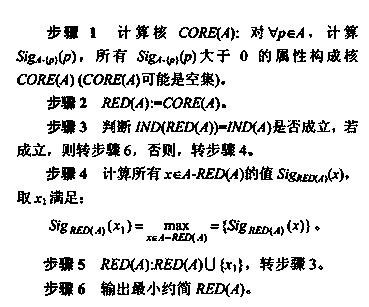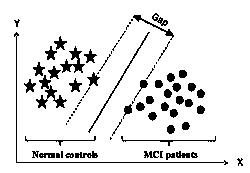Automatic discrimination analysis method of mild cognitive impairment based on support vector machine
A mild cognitive impairment and support vector machine technology, applied in the field of disease diagnosis, can solve the discrimination effect (specificity, accuracy is difficult to meet the requirements of clinical diagnosis, affect the life of the elderly and other problems, to achieve the goal of improving the accuracy of diagnosis Effect
- Summary
- Abstract
- Description
- Claims
- Application Information
AI Technical Summary
Problems solved by technology
Method used
Image
Examples
Embodiment
[0044] An automatic discriminant analysis method for mild cognitive impairment based on a support vector machine, specifically comprising the following steps.
[0045] (1) Define the default network area of interest:
[0046] Based on Michael D. Fox's 2005 Proceedings of the National Academy of Sciences, the coordinates of the default network area of interest for 12 bilateral brain regions are listed (see Table 1). The ROI definition method is as follows: convert Talairach coordinates to MNI coordinates; define 12 spheres with a radius of 9 mm; respectively intersect each sphere with the corresponding Brodmann Area (BA) (for example, based on The sphere defined by the PCC coordinates intersects with BA 31), and then the final ROI is obtained.
[0047] (2) Calculate the default network functional connectivity features:
[0048] Functional connectivity in regions of interest was calculated based on resting-state fMRI data. Calculate the pairwise correlation of the 12 defa...
PUM
 Login to View More
Login to View More Abstract
Description
Claims
Application Information
 Login to View More
Login to View More - R&D
- Intellectual Property
- Life Sciences
- Materials
- Tech Scout
- Unparalleled Data Quality
- Higher Quality Content
- 60% Fewer Hallucinations
Browse by: Latest US Patents, China's latest patents, Technical Efficacy Thesaurus, Application Domain, Technology Topic, Popular Technical Reports.
© 2025 PatSnap. All rights reserved.Legal|Privacy policy|Modern Slavery Act Transparency Statement|Sitemap|About US| Contact US: help@patsnap.com



